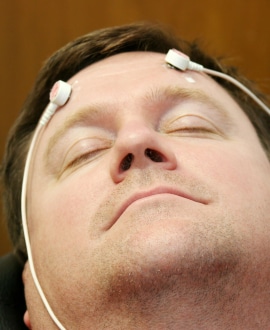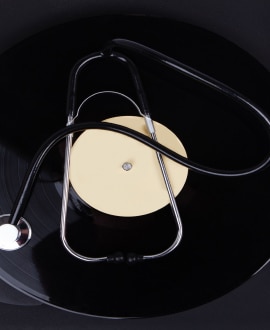Alternative Mesothelioma Treatment
Alternative mesothelioma treatments do not replace traditional cancer treatments, such as chemotherapy and surgery. Instead, these treatments focus on relieving the side effects of cancer and improving quality of life. Examples include meditation, acupuncture, and biofeedback.
Home » National Mesothelioma Law Firm » Mesothelioma Cancer » Mesothelioma Treatment » Alternative Mesothelioma Treatment
Currently, no alternative treatment method has been shown to extend life in mesothelioma patients. However, there are many options available that can help patients handle the side effects of their cancer and its treatment and improve their quality of life. Because certain approaches may interfere with the effectiveness of traditional therapies, you should discuss everything that you’re doing with your treatment team.
Can alternative medicine cure mesothelioma?
It’s important to be clear about what’s meant by the term “alternative medicine.” Some people may use this term to mean replacing traditional medical therapies, such as surgery, chemotherapy and radiation therapy, with other approaches. This may sound very enticing to some patients because it promises to avoid the side effects that are common with cancer treatment.
However, it’s also dangerous. There are no alternative medical treatments that have been proven to extend life in patients with mesothelioma. Alternative treatments have not been shown to be capable of killing cancer cells. If your goal is to live as long as possible, then traditional medical therapies are the only proven way to achieve this.
Although alternative therapies are not effective as a replacement for traditional cancer treatments, they may be useful adjuncts to help patients deal with side effects and improve their quality of life throughout their treatment journey. When used this way, they may be known as complementary medicine or complementary and alternative medicine (CAM).
Which complementary and alternative medicine treatments are effective for mesothelioma?
There are a wide variety of complementary and alternative medicine treatments available. Some of these therapies have been shown to be effective in patients with mesothelioma or other cancers for managing side effects and maintaining a good quality of life. Although high-quality scientific evidence is lacking for some of these approaches, many are unlikely to be harmful, and patients are generally encouraged to try them if they would like to do so. However, it’s also important to be aware that certain approaches may interfere with traditional therapies for mesothelioma, so you should discuss everything that you’re considering with your cancer treatment team before you start using the therapy.
Here are some of the complementary and alternative medicine options that may be helpful for patients with mesothelioma:
Meditation
Patients undergoing cancer treatment frequently report feeling stressed or anxious. For some patients, meditation can be a helpful way to manage anxiety and feel more calm and peaceful during treatment. Studies of meditation have shown that it can help to improve cognitive function and reduce anxiety, stress and depression. It may even help to reduce pain.
There are many different approaches to meditation. One of the most commonly studied is known as mindfulness-based stress reduction, or MBSR. If you’re considering trying meditation, look for a teacher or meditation group in your area. Many cancer care centers offer meditation classes specifically for patients.
Acupuncture
Acupuncture is a healing modality that’s been used in traditional Chinese medicine for many years. During an acupuncture treatment, tiny needles are inserted into the skin at particular points on the body. Although some people are concerned at the mention of needles, acupuncture needles are extremely tiny, and many people can’t even feel them when they’re inserted. Traditionally, the treatment is believed to change the flow of life energy within the body, although modern practitioners often assert that it works by altering nervous system function and blood flow in beneficial ways.
Studies have shown that acupuncture can significantly reduce pain in cancer patients. Although some experts note that the scientific evidence to date is not of high enough quality to definitively conclude that acupuncture is beneficial, acupuncture is also unlikely to be harmful, and some patients choose to try it for themselves. If you’re considering acupuncture, make sure that you choose a licensed acupuncturist with the training and experience to perform your treatment safely.
Yoga and Tai Chi
Both yoga and tai chi are mindful movement modalities. They tend to emphasize controlled movements performed with a relaxed mindset. These classes often also involve meditation exercises, which may have benefits for patients undergoing cancer treatments.
In cancer patients, there is some evidence that yoga and tai chi can be beneficial in reducing symptoms like fatigue, sleep disturbances, depression and anxiety. It’s important to recognize that there are many different types of yoga, some of which are more suitable for cancer patients than others. If you’re considering trying it, you may be able to find yoga specifically for cancer patients at your cancer care center or in your community. Tai chi classes may also be offered at cancer care centers. Make sure that you choose a teacher who’s fully certified, ideally one who has experience in working with cancer patients.
Massage
Massage therapy uses pressure and movement to affect the muscles and other tissues of the body. Many people seek out massage for relaxation or to relieve symptoms like pain and stiffness.
Some studies have found that massage can help to decrease pain in people undergoing treatment for cancer. Massage therapy may also help to decrease anxiety and stress. Because increased anxiety is associated with increased pain, this may be an indirect way for massage therapy to help with pain.
After cancer surgery in the chest, some patients experience swelling of the arm due to the removal of lymph nodes during the surgery. This is known as lymphedema. Some patients may seek specialized lymphatic massage to help drain the excess fluid and manage the swelling. Some studies have shown that massage is beneficial for this purpose, although the results have been inconsistent. Patients will likely still need to wear a compression sleeve to reduce swelling, but massage may be a useful adjunct.
Chiropractic Care
Chiropractic care is an alternative healing modality that involves manipulation of the spine and other joints. It’s most commonly used for treating musculoskeletal conditions and has generally been found to be effective for back pain.
Patients with cancer often have musculoskeletal issues, including pain and stiffness. The risk of these issues may be increased by the fatigue that cancer and its treatment often induce; this may cause patients to move their bodies less, leading to musculoskeletal problems. Some patients find chiropractic care beneficial for addressing these types of issues. If you decide to try it, ensure that you choose a fully licensed chiropractor with a doctoral-level degree in chiropractic.
Transcutaneous Electrical Nerve Stimulation
(TENS)
Transcutaneous electrical nerve stimulation, or TENS, uses a small electrical current that is passed through the skin to affect the function of nerves. The most common use of TENS is for pain control.
TENS offers a drug-free pain control modality. Although many studies have found TENS to be effective for controlling pain, there is still scientific debate about the quality of these studies. Some studies have also found that TENS is not effective at relieving cancer pain. Still, the use of TENS is considered to be safe for most patients, although patients with implantable devices like pacemakers shouldn’t use TENS. There may also be some limitations as to where the electrodes can safely be placed.
Biofeedback
Biofeedback is a type of mind-body therapy. During a biofeedback session, electrical instruments are used to monitor certain bodily functions. By increasing their awareness of these functions, the person aims to gain a greater degree of control over them. Some functions that may be monitored include heart rate, brain waves, muscle contractions, skin temperature or sweat gland activity. A common goal of biofeedback is to learn to activate one’s own relaxation response by gaining awareness of physiological functions that are associated with it.
Cancer patients may use biofeedback to help with anxiety and pain. There are a few small studies that suggest benefits of biofeedback for patients undergoing treatment for cancer, although more research is needed to confirm its efficacy. However, biofeedback is generally considered to be safe and could be helpful for some cancer patients.
Music Therapy
Music therapy uses music to benefit a person’s physical and emotional well-being and quality of life. This may involve interactive music therapy, where the patient expresses themselves through music by singing or using a musical instrument. The goal is not to gain skills in playing an instrument or singing, but rather to express oneself freely through music. It may also involve receptive music therapy, which involves listening to music, sometimes along with a technique like guided meditation.
Studies have shown that music therapy can improve quality of life and overall well-being and reduce pain and stress in patients with cancer. It’s considered to be extremely safe and can be very enjoyable. For best results, seek out a fully certified music therapist who has been specifically trained in music therapy techniques.
Herbs and Supplements
There are certain herbs and supplements that may be helpful for controlling symptoms related to mesothelioma and its treatment. For example, studies have found that ginger is effective at controlling nausea related to chemotherapy treatment.
However, herbs and supplements can also interact with chemotherapy medications in ways that either reduce their efficacy or increase their toxicity.
Some of the supplements that should generally be avoided by cancer patients include:
- Ginkgo
- Garlic
- Ginseng
- St. John’s wort
- Echinacea
- Green tea extract
- Kava
The exact list of supplements that are safe for you depends on your particular chemotherapy regimen, along with any other medications that you may be taking. This is why you need to discuss any herbs and supplements that you’re considering with your oncologist. They will let you know whether a particular herbal treatment or supplement is a safe choice for you.
Can complementary and alternative medicine be used along with traditional medicine?
You should absolutely discuss everything that you’re doing with your cancer treatment team. Although some patients are concerned that their caregivers will not support their use of complementary therapies, this is generally not true. Medical professionals who care for cancer patients usually support therapies that can help to improve their patients’ quality of life and encourage patients to try these if they’re experiencing side effects. In fact, many cancer care centers practice integrative medicine, which brings together traditional and CAM treatments to provide patients with holistic treatment.
At the same time, it’s important that they be aware of what you’re doing, particularly if you take any herbs or supplements. These can sometimes interact with treatments like chemotherapy, which may lead to significant side effects or cause your treatment to be less effective. It’s also important that your complementary treatments are tailored to your specific situation; for example, a massage therapist may need to avoid putting pressure on particular areas of your body. Don’t hesitate to tell your treatment team about any complementary methods that you’re thinking about trying. They’ll let you know if it might cause an interaction and will encourage you to give it a try if they believe it’s safe for you.
By submitting this form, you agree to our terms & conditions. Please read the full disclaimer












